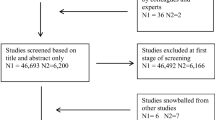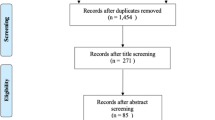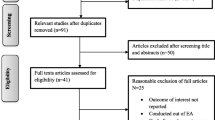Abstract
Objectives: To determine whether the relationship between breastfeeding duration and the health status of 5-month-old Quebec infants differs by poverty status. Methods: Cross-sectional study of Quebec Longitudinal Study of Child Development data of a sample of 2223 infants who were 5 months old. Two infant health indicators were considered: presence of chronic diseases and hospitalization for at least one night since birth. Differences in the associations between infant health and breastfeeding duration according to poverty status were explored using a logistic regression model and controlling for children’s and mothers’ characteristics. Results: Infants of low-income mothers were breastfed less often and for shorter periods of time. At five months, they had poorer health compared with children from families with adequate income. However, a positive association between breastfeeding duration and these health indicators was observed and was independent of poverty level. There was no interaction between poverty level and breastfeeding duration for the two health indicators studied. Conclusions: The associations between maternal breastfeeding for 4 months or more and both hospitalizations before 5 months of age and chronic diseases are independent of family income level. However, low-income mothers breastfeed less often and for shorter periods of time. Interventions intended to promote and support breastfeeding should especially target mothers living in poverty conditions.
Similar content being viewed by others
Notes
Very few low-income mothers (8%) breast-fed exclusively for more than 9 weeks. For the purpose of our analysis, we therefore used a definition of breast-feeding that includes exclusive and mixed breast-feeding.
For example, for 2-person household in Montreal, the pre-tax low-income cut-off (base year 1992) set by Statistics Canada for reference year 1998 was $22,357.
References
Dubois L, Bédard B, Girard M, Beauchesne É. «Diet» in Québec Longitudinal Study of Child development in Québec (QLSCD 1998–2002). Research report, vol 1, no 5, Québec: Institut de la statistique du Québec; 2000.
Seguin L, Kantiébo M, Xu Q, Zunzunegui MV, Potvin L, Frohlich KL, et al. «Standard of Living, Health and Development, Part 1- Poverty, Health Conditions at Birth and Infant Health» in Québec Longitudinal Study of Child Development (QLSCD 1998–2002), vol 1, no 3, Québec: Institut de la Statistique du Québec; 2001.
Séguin L, Xu Q, Potvin L, Zunzunegui MV, Frohlich KL, Dumas C. Effects of low income on infant health. Can Med Assoc J 2003;168(12):1533–1538.
Dubois L, Girard M. Social determinants of initiation, duration and exclusivity of breastfeeding at the population level. Can J Public Health 2003;94(4):300–305.
Pediatrics AAo, Breastfeeding WGo. Breastfeeding and the use of human milk. Pediatrics 2005;115(2):496–506.
WHO. Expert consultation on the optimal duration of exclusive breastfeeding-Conclusions and recommendations. Geneva: WHO; 2001.
Dewey KG, Heinig J, Nommsen-Rivers LA. Differences in morbidity between breast-fed and formula-fed infants. J Pediatr 1995;126(5):696–702.
Raisler J, Alexander C, O’Campo P. Breast-feeding and infant illness: a dose-response relationship? Am J Public Health 1999;89(1):25–30.
Cushing AH, Samet JM, Lambert WE, Skipper BJ, Hunt WC, Young SA, et al. Breastfeeding reduces risk of respiratory illness in infants. Am J Epidemiol 1998;147(9):863–870.
Oddy WH, sly PD, De Klerk NH, Landau LI, Kendall GE, Holt PG, et al. Breast feeding and respiratory morbidity in infancy: a birth cohort study. Arch Dis Child 2003;88:224–228.
Kramer MS, Chalmers B, Hodnett ED, Sevkovskaya Z, Dzikovich I, Shapiro S, et al. Promotion of Breastfeeding Intervention Trial (PROBIT): a randomized trial in the Republic of Belarus. JAMA 2001;285(4):413–420.
Bachrach VRG, Schwarz E, Bachrach LR. Breastfeeding and the risk of hospitalization for respiratory disease in infancy. Arch Pediatr Adolesc Med 2003;157:237–243.
Chen A, Rogan WJ. Breastfeeding and the risk of postneonatal death in the United States. Pediatrics 2004;113(5):e435–e439.
Martens PJ, Derksen S, Gupta S. Predictors of hospital readmission of Manitoba Newborns within six weeks postbirth discharge: a population-based study. Pediatrics 2004;114(3):708–713.
Mortensen EL, Michaelsen KF, Sanders SA, Reinisch JM. The association between duration of breastfeeding and adult intelligence. JAMA 2002;287(18):2365–2371.
Oddy WH, Kendall GE, Blair E, De Klerk NH, Stanley FJ, Landau LI, et al. Breast feeding and cognitive development in childhood: a prospective birth cohort study. Paed Perinat Epidemiol 2003;17:81–90.
Rao MR, Hediger ML, Levine RJ, Naficy AB, Vik T. Effect of breastfeeding on cognitive development of infants born small for gestational age. Acta Paediatrica 2002;91:267–274.
Beaudry M, Dufour R, Marcoux S. Relation between infant feeding and infections during the first six months of life. J Pediatr 1995;126:191–197.
Paquet G, Girard M, Dubois L. Standard of living, health and development, part II - social inequality and child development in Longitudinal study of child development in Quebec (ÉLDEQ 1998–2002), vol 1, no 3. Québec: Institut de la statistique du Québec; 2001.
Li R, Grummer-Strawn L. Racial and ethnic disparities in breastfeeding amomg United States infants: third national health and nutrition examination survey, 1988–1994. Birth 2002;29(4):251–257.
Li R, Zhao Z, Mokdad A, Barker L, Grummer-Strawn L. Prevalence of breastfeeding in the United States: the 2001 national immunization survey. Pediatrics 2003;111(5):1198–1201.
Mitra AK, Khoury AJ, Hinton AW, Carothers C. Predictors of breastfeeding intention among low-income women. Matern Child Health J 2004;8(2):65–70.
Li R, Darling N, Maurice E, Barker L, Grummer-Strawn L. Breastfeeding rates in the United States by characteristics of the child, mother, or family: the 2002 national immunization survey. Pediatrics 2005;115(1):e31–e37.
McCormick MC, Brooks-Gunn J. Concurrent child health status and maternal recall of events in infancy. Pediatrics 1999;104(5):1176–1181.
Fields D, Draper ES, Gompels MJ, Green C, Johnson A, Shortland D, et al. Measuring later health status of high risk infants : randomised comparison of two simple methods of data collection. BMJ 2001;323:1–5.
Jetté M, DesGroseillers L. «Survey Description and Methodology» in Québec Longitudinal Study of Child Development (QLSCD 1998–2002). Research Report, vol 1 no 1, Québec: Institut de la statistique du Québec; 2000.
Hill PD. Predictors of breastfeeding duration among WIC and non-WIC mothers. Pub Health Nurs 1991;8(1):46–52.
Taveras EM, Li R, Grummer-Strawn L, Richardson M, Marshall R, Rêgo VH, et al. Opinions and practices of clinicians associated with continuation of exclusive breastfeeding. Pediatrics 2004;113(4):e283–e290.
Acknowledgements
This study was made possible by a research grant from the Canadian Institutes of Health Research (MOP-77835-PSB-CFCA-32950).
We would like to extend our warmest thanks to Qian Xu, MD, MSc, for her assistance and support, as well as to the Institut de la Statistique du Québec for allowing us to use some of its data. We would also like to express our gratitude to the “Santé et développement des enfants du Québec” project for the research grant that enabled us to carry out this study.
Author information
Authors and Affiliations
Corresponding author
Rights and permissions
About this article
Cite this article
Coulibaly, R., Séguin, L., Zunzunegui, MV. et al. Links Between Maternal Breast-Feeding Duration and Québec Infants’ Health: A Population-Based Study. Are the Effects Different for Poor Children?. Matern Child Health J 10, 537–543 (2006). https://doi.org/10.1007/s10995-006-0114-y
Published:
Issue Date:
DOI: https://doi.org/10.1007/s10995-006-0114-y




